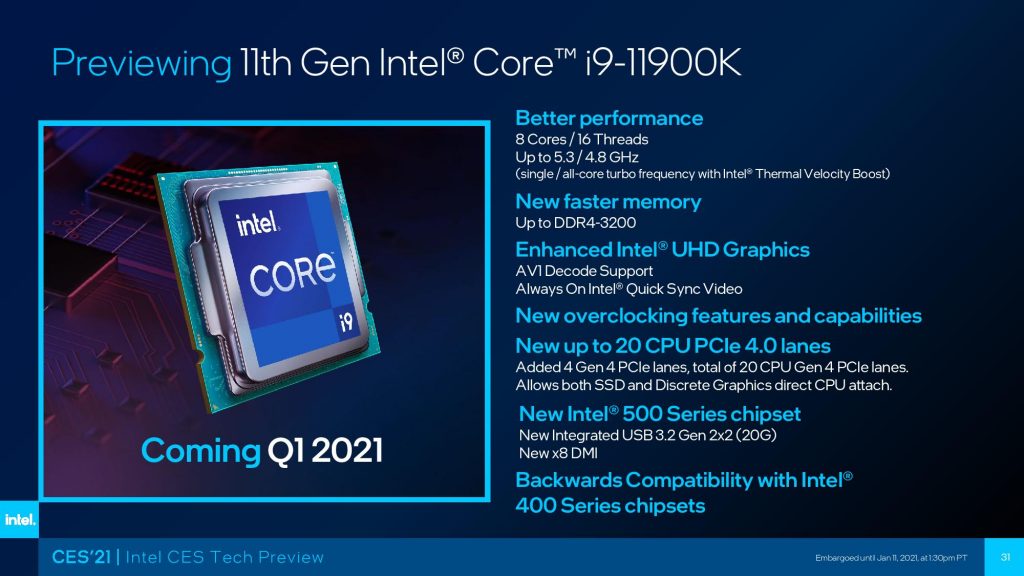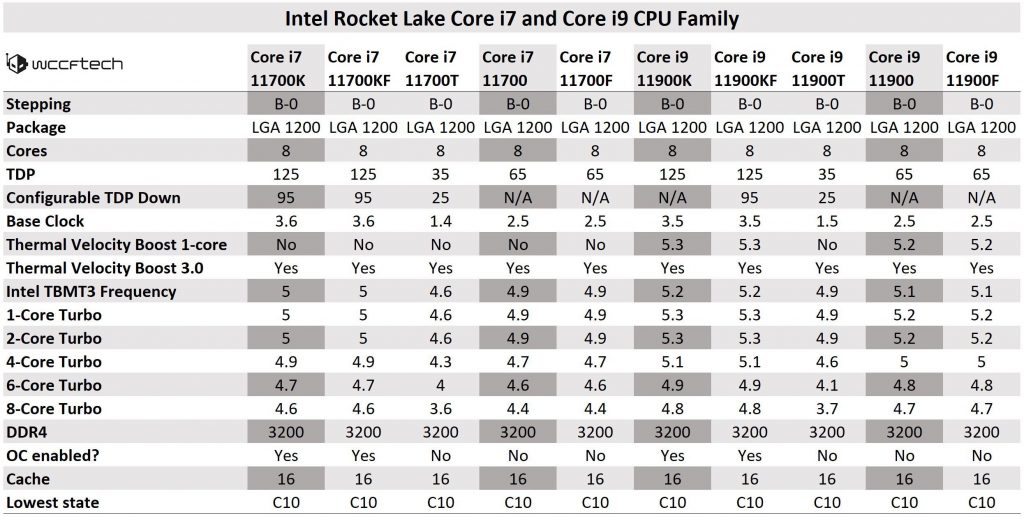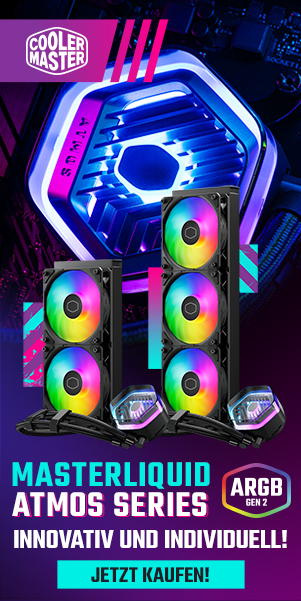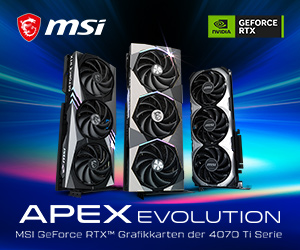Those who are waiting for news about Intel’s upcoming Rocket Lake processors can take a deep breath just before the launch, only to come up for air again right away. After all, Intel’s Rocket Lake architecture represents the first significant architecture upgrade in over 6 years and will also support PCIe 4.0, so they can catch up to AMD’s current Zen3 platform there as well. In addition, there is a massive IPC increase compared to Skylake.
The colleagues from WCCFTECH were able to get the data of the so called QS (Quality Samples) for the whole lineup and one can assume that the B0 stepping then also basically corresponds to the QS. But even if Intel were to tweak the clock a bit, it would only go up a bit at most. It should not be worse than what the following table of the colleagues shows, at the most better. The company’s flagship Core i9 11900K will be able to clock in at an astonishing 5.3GHz single-core and 4.8GHz all-core, according to the table, thanks to Intel’s incredibly mature 14nm process.
Combined with the projected IPC increase, this should be able to put an incredible amount of competitive pressure on AMD’s Zen 3 lineup. And it wouldn’t be a surprise if Intel reclaimed the performance crown from AMD this year, either. Now let’s take a look at the Core i7 and Core i9 lineup (graphic by WCCFTECH):
Intel is preparing a total of 10 SKUs of the Core i7 and Core i9 families for launch in the foreseeable future. The TDP ranges from a low 25W all the way up to 125W, so depending on whether you prefer energy efficiency or just raw power, there’s plenty of choice for everyone. Intel’s flagship, the Intel Core i9 11900K represents a super binned chip at the top of the lineup, which is specially selected for these clock speeds and can also be shipped in decent quantities.
Considering that this is still 14nm, the availability of these SKUs should be very good after all. There will certainly be variants like the Core i9 11900KF, Core i9 11900T, Core i9 11900 and Core i9 11900F as spin-offs later on. Intel has even managed to offer an all-core boost of 3.7 GHz at only 35W TDP with the Core i9 11900T. This will definitely be able to put AMD on the spot.
For the Core i7, the all-core boost will be around 4.6 GHz, while the single-core boost will be around 5.0 GHz. These are lower-binned variants that Intel will also offer much cheaper than the Core i9 models. They will of course also offer the 18% IPC increase over the last generation and PCIe 4.0 will also be available. With TSMC’s bottleneck and AMD’s supply issues, Intel has a real chance to gain market share if they can ship Rocket Lake in volume.
Based on benchmarks that have already been leaked, we can probably also expect the Core i7 family to perform only slightly worse than AMD’s current Zen 3-based offerings, and you might even see parity in some cases. Rocket Lake is thus the most exciting offering from Intel in many years. With the mature 14nm process and the new architecture, Intel has a real chance to make a real difference in the market. So one can be curious.
Source: Usman Pirzada, WCCFTECH
































16 Antworten
Kommentar
Lade neue Kommentare
Urgestein
Urgestein
Mitglied
Urgestein
Neuling
Urgestein
Mitglied
Veteran
Mitglied
Veteran
Urgestein
Urgestein
Veteran
Mitglied
Veteran
Mitglied
Alle Kommentare lesen unter igor´sLAB Community →